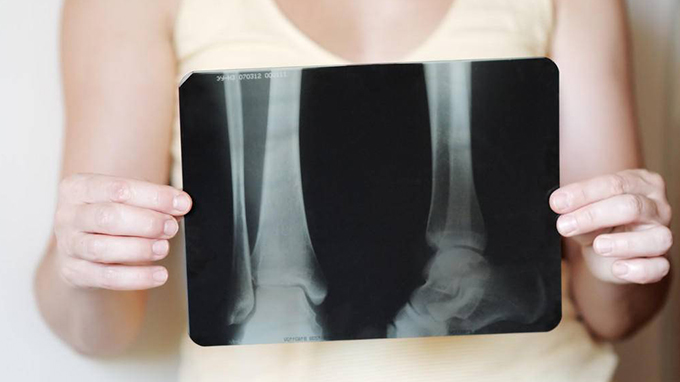Children with diabetes
is a child diagnosed with type 1 diabetes who needs lifelong insulin replacement therapy. That day, I walked into the ward and saw the big boy again. A long and handsome boy who had gone to middle school and was about as tall as me.

That child is already the first of the month He was hospitalized for the second time. The reason for the hospitalization was the same as the first hospitalization. The blood glucose control was not good, and the child suffered from acidosis. The most fundamental reason for poor control is that the child does not cooperate well with treatment. According to the doctor''s advice, the child is injected with insulin subcutaneously every day, but the child cannot insist. The parent of the child said that her child is generally a very obedient child, and he always injected himself every time without parental concerns. But after all, the child is a child, and the parent is a little inattentive, and the child evades the injection. Sometimes when I talk too much, the child loses his temper with his parents.
The child’s mother came to her and said that because she bought biscuits that were not suitable for her child, her son was angry with her again and was not cooperating with the nurse''s injection. When I saw the child’s mother blowing her nose in the office, she told me in the office with tears. I felt uncomfortable. I comforted her and got up to find the child.
saw me When he arrived, the boy lowered his head and said nothing. I walked to him and said, "I''m playing with my temper? Young man? Be obedient, get well early, and leave the hospital early. Otherwise, you''ll have to do your homework. Do you know?" The boy still didn''t speak. I continued to say: "Your disease is not very serious, just long-term treatment, there are many children like you, as long as you insist on treatment, there is not much difference from normal people, I believe you are a very brave child... ." I talked to the nurse around me, and the nurse took the opportunity to tie the needle to him.
Although the child cooperated with the treatment, he lay in bed, did not speak, and his face was expressionless. I thought he was calmer, and said to the child''s mother: "Your child is a very obedient child. After a few days, he can be discharged from school and go to school." The child''s mother nodded to me with tears.
left the ward, I was in a bad mood. Such a child would have to face the injustice brought to him by fate, which is really pitiful. I have to give myself an injection every day to change to an adult, and I don’t necessarily have to persevere for a long time, but is there any way? I heard that an insulin pump can be installed on such a child, but parents have to ask for tens of thousands of yuan. A laid-off worker''s family has a very high expense, and the parents can''t make such a sum of money for the time being. So at present, we can only use this original method to see children. How to let the child cooperate with the treatment for a long time? I think this should be the key issue, so that the child can accept such long-term treatment willingly? I really don’t know of any good way?
Frankly speaking Every time I encounter a similar situation, I have a headache. I always thought that I was not a very qualified doctor. In my opinion, in addition to good medical skills, a good doctor should also be a good psychologist who can treat patients'' diseases both psychologically and physiologically. However, in actual work, clinical and psychological are separated and are two departments. Although we have studied psychology, it is also a superficial theory, and there is very little knowledge of the use of psychology in clinical practice. Most of the time, our clinical doctors are concerned about the physical disease of the patient. When the disease is cured, we think that we have cured the disease. However, when we meet children who cannot be completely cured, such as those with chronic diseases, we can only comfort and comfort, and we can''t say anything more appropriate, so that our families and children feel more at ease. Most of the time, for children with chronic diseases, our job is to give them some treatment options after their condition is stable, let them take the medicine out of the hospital, and then check it out regularly.
After dinner at noon that day, I passed a medical bookstore. I walked in and looked at it, and suddenly found that there were many popular science books about diabetes. I looked through it, and it felt very good and popular. Easy to understand, there are also words and stories that encourage patients to treat for a long time. I suddenly felt that this book should be given to this child, maybe it will give him some help. After buying the book, I wrote a few words in the book: "This book is for you. I believe you are a brave child." Then I signed my name.
Back to the ward, I gave the book to the child, and the child''s eyes showed surprise. In the next few days, the child was in a good mood and cooperated very well with the treatment. He was soon discharged from the hospital. For a long time, I had no news of that child.
One afternoon, the child’s mother brought the child to the ward to find me. I thought the child was here for review. I did not expect that the child’s mother told me that they came to thank me specially, the child’s mother. He said that since his child read the book, he was very obedient and gave himself injections on time every day. Recently, his blood sugar has been well controlled and he has gained a lot of weight. His child said that he wanted to see the doctor who gave him a book. So she brought the child, and I turned to look at the child. The child did not approach me, a little embarrassed, standing far from the door of the ward, he looked at me, did not speak, just rushed Smile at me...
Related Articles

- Understanding post-menopausal osteoporosis
- A few days ago, an elderly woman was admitted to the ward. The patient had a hip fracture because of a fracture. Not long ago, he had surgery to fix the internal fixation screw. This time
- 2020-08-03

- Dietary principles of patients with hyperlipidemia
- The main dietary principle of patients with hyperlipidemia is to control the continued rise of blood lipids and prevent serious cardiovascular and cerebrovascular accidents. In addition to th
- 2020-08-02

- How long can chemotherapy edema recover
- How long can chemotherapy edema recover? Patients after chemotherapy often show various symptoms and physical discomfort. These abnormal signs are classified as toxic and side effects after
- 2020-07-23

- Why do people with diabetes need calcium supplements every day
- Calcium helps diabetic people. There are many diabetic people around. Let them make calcium supplements from their diet every day. They don’t understand why they need calcium supplement. he
- 2020-06-20

- Diabetes, how to overcome hunger
- Yesterday, a friend who was already diabetic told me that she often feels hungry, Ask what to do? How to overcome hunger? After controlling the diet, many diabetics often feel hungry. In
- 2020-04-19

- How do people with diabetes eat fruits
- Diabetes can eat fruits and fruits is one of the important components of a balanced diet. "Guidelines for the prevention and treatment of type 2 diabetes in China 2007" pointed out
- 2020-04-19
